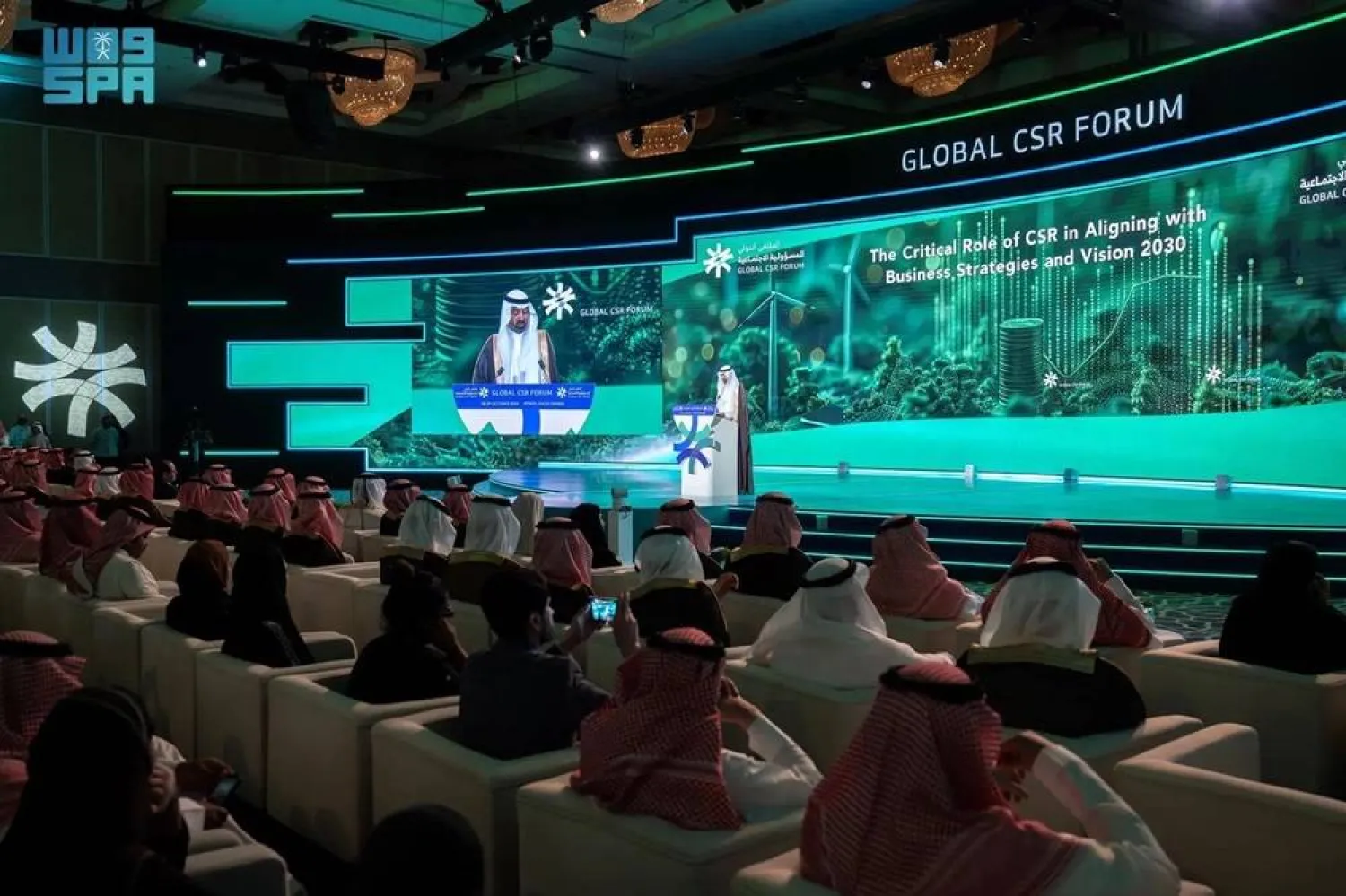The inaugural Global Corporate Social Responsibility (CSR) Forum kicked off in Riyadh on Monday under the patronage of Custodian of the Two Holy Mosques King Salman bin Abdulaziz Al Saud.
Organized by the Saudi Ministry of Human Resources and Social Development under the theme "From Commitment to Impact", the forum aims to promote social responsibility initiatives.
In opening remarks, Minister of Human Resources and Social Development Eng. Ahmad bin Sulaiman Al-Rajhi said: "Saudi Arabia's goal for this forum is to serve as a global platform for dialogue on social responsibility, enabling us to meet, exchange expertise, and discuss challenges, solutions, and opportunities to expand private sector involvement in sustainable development. Together, we aim to set a global model for creating new partnerships between the public and private sectors."
Saudi Arabia's achievements in the field of social responsibility represent an "inspiring transformation and empowerment story", with social responsibility recognized as a strategic objective in the Saudi Vision 2030, that of "promoting corporate social responsibility", he added.
This has led to the developing tools and enablers that would drive strategic transformation in corporate social responsibility, including the establishment of a Social Responsibility Committee by a Cabinet decision, formulating a social responsibility strategy, launching a national social responsibility platform to lead transparency in social responsibility.
It also led to declaring March 23 as an annual Social Responsibility Day, highlighting private sector initiatives, issuing a corporate social responsibility guide, developing a social responsibility index in the Saudi market, and establishing a unified national identity for social responsibility.
Al-Rajhi cited a significant increase in corporate social responsibility engagement across Saudi Arabia. These contributions to social spending jumped from 1.19% in 2019 to 4.15% by the end of 2023, while the percentage of large companies with CSR programs jumped from 30% to 65% during the same period.
This progress is reflected in Saudi Arabia's improved global ranking, climbing to 16th place in the IMD World Competitiveness Yearbook 2024's Social Responsibility Index, up from 41st in 2021. Al-Rajhi was confident that Saudi Arabia will be among the top CSR countries in the world by 2030.
At the forum, the Ministry of Human Resources and Social Development aims to engage decision makers from the private sector, government representatives, development organizations, and experts in social responsibility and sustainability in discussions on challenges and opportunities for growth.
The forum seeks to foster innovation, shape the future of social responsibility on a global scale, encourage excellence and competitiveness, facilitate partnerships among public, private, and non-profit sectors, and expand opportunities for international collaboration in this field.









